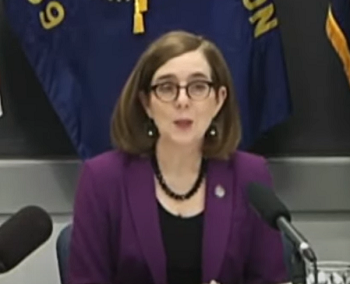Is there any relevance to best practices?
Involving kids into pollical decisions has been a priority for Governor Brown. So much so that
HB 3363 establishes a Racial Equity and Justice Student Collaborative, which is directed by a work group of at least 6 students and 3 adults to filter prospective members of the Collaborative for the Governor’s selection. The majority of the members of the Collaborative must be students between the ages of 11 to 18. The Collaborative duties are to set goals, success criteria and progress measures related to student leadership and engagement in the policymaking process in this state.
The Collaborative gives students ages 11 to 18 a lot of power to be heard on policy for the state. But where they are considered an asset for their critical thinking, they aren’t trusted in other areas.
- HB 2959 requires child's consent to parenting plan if child is 14 years of age or older.
- However, HB 2402 prohibits under 18 years of age from using tanning devices
Some laws proposed have a basis in the science of brain development and the permanent damage caused:
- HB 2261 requires purchaser of tobacco inhalant delivery systems to aid in quitting smoking to be 21 or older. However, SB 64 creates an exemption for a person under 21 to enter establishment where tobacco products or inhalant delivery systems are sold for purposes of investigating violations.
- However, HB 2775 canisters or other products from which individual may directly inhale restricted inhalant may be sold or delivered to individual who is 18 years of age or older.
- HB 2648 and SB 526 sets age at 18 or over with valid ID may purchase a drug containing pseudoephedrine without prescription from a pharmacy.
Then there are those bills that take no account for brain development and the effect of real life experiences:
- SJR 25 amends the Oregon Constitution lowering voting age from 18 years old to 16 years old.
- SB 776 permits individual who is 16 or 17 years of age and registered to vote to cast ballot in school district elections.
- HB 2679 Permits person who will be 17 years old on date of primary election and 18 years old on date of general election to vote at primary election.
Judicial treatment indicates a pattern of forgiveness:
- HB 2146 a person who is under 18 years of age at the time of committing an act that, if committed by an adult, would constitute a crime is immune from prosecution
- SB 766 reduces date of expiration of sexual abuser restraining order for orders entered when petitioner was under 18 years of age to expire on January 1 following 18th birthday.
- SB 418 a person under 18 years of age has a rebuttable presumption that statements made during a custodial interview investigation is involuntary if peace officer intentionally used false information to elicit statement.
Consent and disclosure are at odds.
SB 792 protects disclosing child’s identifiable information under 16 years of age when applying to State Fish and Wildlife Commission for license and tags.
However, parents should be aware of
HB 3284, which allows 14-year-olds to give consent to collect, use or disclose personal health data. “Personal health data†is protected data and not for sharing without expressed consent, which your 14-year-old can give under this bill. This includes information that is collected to track, monitor or trace exposures to infections caused by or related to COVID-19 that can be used to identify a resident individual or others.
One thing seems clear, age is being used to the advantage of the issue at hand and has no relevance to best practices.
--Donna Bleiler| Post Date: 2021-05-30 12:05:20 | Last Update: 2021-05-30 17:40:03 |






